 On a recent holiday to Australia, I got in touch with the wonderful people at JOY 94.9, Melbourne’s LGBT community radio station.
On a recent holiday to Australia, I got in touch with the wonderful people at JOY 94.9, Melbourne’s LGBT community radio station.
This mission statement is taken from their website, and I just love the simplicity of the spirit behind it:
“JOY 94.9 is a gay and lesbian volunteer-based community radio station committed to providing a voice for the diverse lesbian and gay communities, enabling freedom of expression, the breaking down of isolation and the celebration of our culture achievements and pride.”
I was invited onto the programme Word for Word with well-known gay Aussie DJ Dean Beck, who immediately put me at ease despite my being completely unprepared for an hour-long interview. At least it was to be recorded, not live! Apparently my contact and gorgeous friend Jason Gipps (producer of another JOY programme – Asian Pop Radio Australia) had told Dean I was a “talker”!
Anyway, here’s a podcast of my interview with Dean (approximately 45 mins after edits). Just click on the screenshot below, which will take you directly to the podcast. If you prefer to read on, there are some excerpts below where I talked about being gay in Singapore, the local scene, and the inspiration behind putting together I Will Survive.
EnJOY!
Yangfa
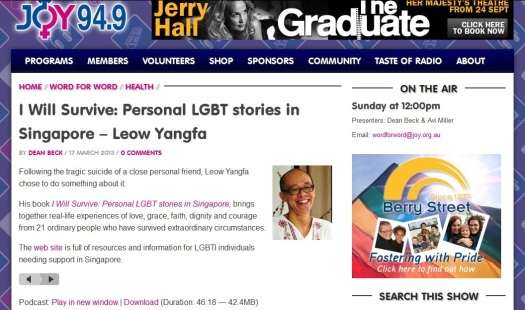
How I Will Survive got started
The last time I was in Australia, in 2009, I was actually in Sydney when I got news from a mutual friend, that someone we knew, saying he’d just killed himself, a few days before his own birthday. And I thought, sitting there with that text message, away from home, I just felt so lost and helpless.
And also thinking back, literally a few days before getting that text message, I’d just been on Facebook with him, as I was on holiday, and he was talking about how he was feeling very down and he had actually expressed thoughts of ending his life. And because I was so far away, the only connection I had with him at that point was through Facebook. So when I finally got that news saying he had actually killed himself, that was devastating.
 Working on I Will Survive
Working on I Will Survive
I did all this work with I Will Survive, outside of my day job. Basically got round to talking to different people, getting ideas from them, getting sense whether this was possible, should this be done, can it even be done, is it even feasible. And I still remember on the flight back home from Sydney, writing down all the thoughts I had on a notebook, and coming up with possible book titles, that was the first thing I tried to do, and thinking, “What should I do?” Should I start talking to people for their stories first, thinking about how to go about doing it. Because I do know some people who have been through difficult times, personal contacts of mine, and I thought, i’d just start with them, and see what they think, and how comfortable they were, sharing with me their personal stories.
And after a while I thought, because some of these issues they were sharing with me were very personal, very difficult, so they’re not all coming out stories, because for many of them, there’s still a sense of, they’re not quite ready to come out, not just families or friends, but to Singapore, the rest of the country.
Their story about living with being gay, lesbian, bisexual or transgender, and perhaps having some other personal issues to deal with as well. So the one thing I put in place quite early on, in the work I was doing, is to invite people to share with me their stories, but anonymously. On the condition that their real names, identities will not be revealed. So all the names in the book are pseudonyms; I’ve kept everything they’ve told me about themselves, but without having too much identifying information.
So for example, the first person I spoke with shared with me about how he had been, and still is, living with bipolar depression. And he had that phrase that sums it all up. For him it was like living in a double closet. The first closet of having to deal with the mental illness, before he had the opportunity or even the time to deal with being gay, because he was diagnosed with bipolar depression when he was a teenager, and the whole gay thing, coming out, only came about later on, as an adult.
And stories are such a powerful way of dispelling myths, and promoting awareness and understanding, so that was another reason why I wanted to do this, to humanise a lot of the issues we read about in the newspapers, letting people know that these are real people with real stories. The only thing I’ve changed is just their names.
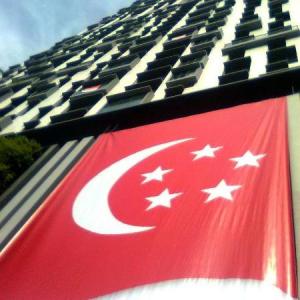 Growing up in Singapore
Growing up in Singapore
I’m Chinese-Singaporean by birth & nationality. Grew up in a very middle-class kind of average family, youngest of 3 children. My grandparents came from mainland China, a hundred years ago; so my parents and myself, my siblings, I suppose we call ourselves second or third-generation Singaporeans. In that family, I have 2 older sisters, and a social worker by profession.
I won’t say my upbringing was a very typical one in terms of education and all that. I went to one of the better schools in Singapore, all boys’ schools up till I was 16. In that kind of environment it wasn’t too hard to discover one’s own sexuality. As it turned out, most of my classmates were either gay or bi anyway.
It was never a boarding school obviously, it was a local school, I certainly felt mixed feelings, thinking back. It’s all boys, so you know everyone’s growing up with their own angst, but the strange thing is, you’d never think that most people, or anyone, for that matter, would be gay. You always think that you’re the only one.
I still remember that very moment when I came out to a classmate, I think this was when we were in our very late teens, after we’d left school. And we looked at each other thinking: “Why didn’t we know?” I wish we had known earlier, but we didn’t. He turned out to be gay as well.
On the one hand it’s all guys, you get on with things, on the other hand you still feel very alone, because you wonder, as no one’s talking about it. I am, but I don’t have the word for it.
The other very universal theme we often hear about is that coming out is not often a one-step process, it’s a series of stages. For me I can think back to secondary school, for us secondary school is 13 to 16, 17. For me, again, reading. Reading other people’s stories. It was very important. And this was back before the age of the Internet, when one would find books, be it fiction, novels, short stories, and make that kind of connection with other people, other gay people in the world. That’s the sense of, oh, other gay people go through that too.
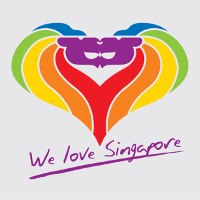 The gay scene in Singapore
The gay scene in Singapore
We do have a thriving gay scene, depending on what rocks your boat, in terms of bars, clubs and saunas, believe it or not. And centred very much around Chinatown in Singapore, Tanjong Pagar Road, Neil Road. The last time I had this discussion with a friend, we were just sitting in a bar, thinking that within a 5-min walk there’s at least 5 saunas, at least 4 or 5 different bars and clubs. Quite clustered around there. So that’s exciting, but that’s just nightlife.
And of course there’s lots of social, community groups as well, for young people, women’s groups. We do have our own local LGBT counselling service, called Oogachaga. The name’s from Ally McBeal – so it’s based on the fact that there’s the inner person in you, about discovering your true self. I know the person who runs it, Bryan Choong, they provide counselling services for families, individuals, couples, support groups as well.
And of course we have our own local LGBT library and resource centre, called the Pelangi Pride Centre, run by an excellent team of volunteers, Eileena, Charmaine and all the rest.
And we have our own Free Community Church, based on the Metropolitan Community Church. Very inclusive kind of Christian religious set-up. I don’t personally it but I know the wonderful people who run it – Reverend Yap, Reverend Miak and colleagues.
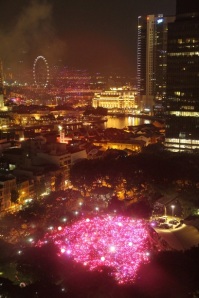 One last plug
One last plug
There’s something else we’re extremely proud of in Singapore. Every year, for the past 4 years, we’ve been doing something called Pink Dot. I suppose you could call it our own LGBT pride carnival/ festival. Every year, around May or June, we basically get as many people as we can together, in this one spot in Singapore, get everyone dressed in pink, and take an aerial photograph, as a circle. In the very first year, in 2009, it was 2,000 people, we formed a dot. In the following year, the numbers doubled, we somehow managed to form a dot and lots of other shapes.
So it got to the point where last year, in 2012, we had our first-ever night-time Pink Dot. You still wear pink, but with pink LED torches, and there were 10,000 people. And we formed a splodge. A huge, beautiful pink splodge. You can see the pictures on the website Pinkdot.SG. The beautiful people behind it are excellent, and the tagline is “The Freedom to Love”, regardless of your sexual or gender orientation. Simple as that. Again, love is universal.
 I survived bullying.
I survived bullying.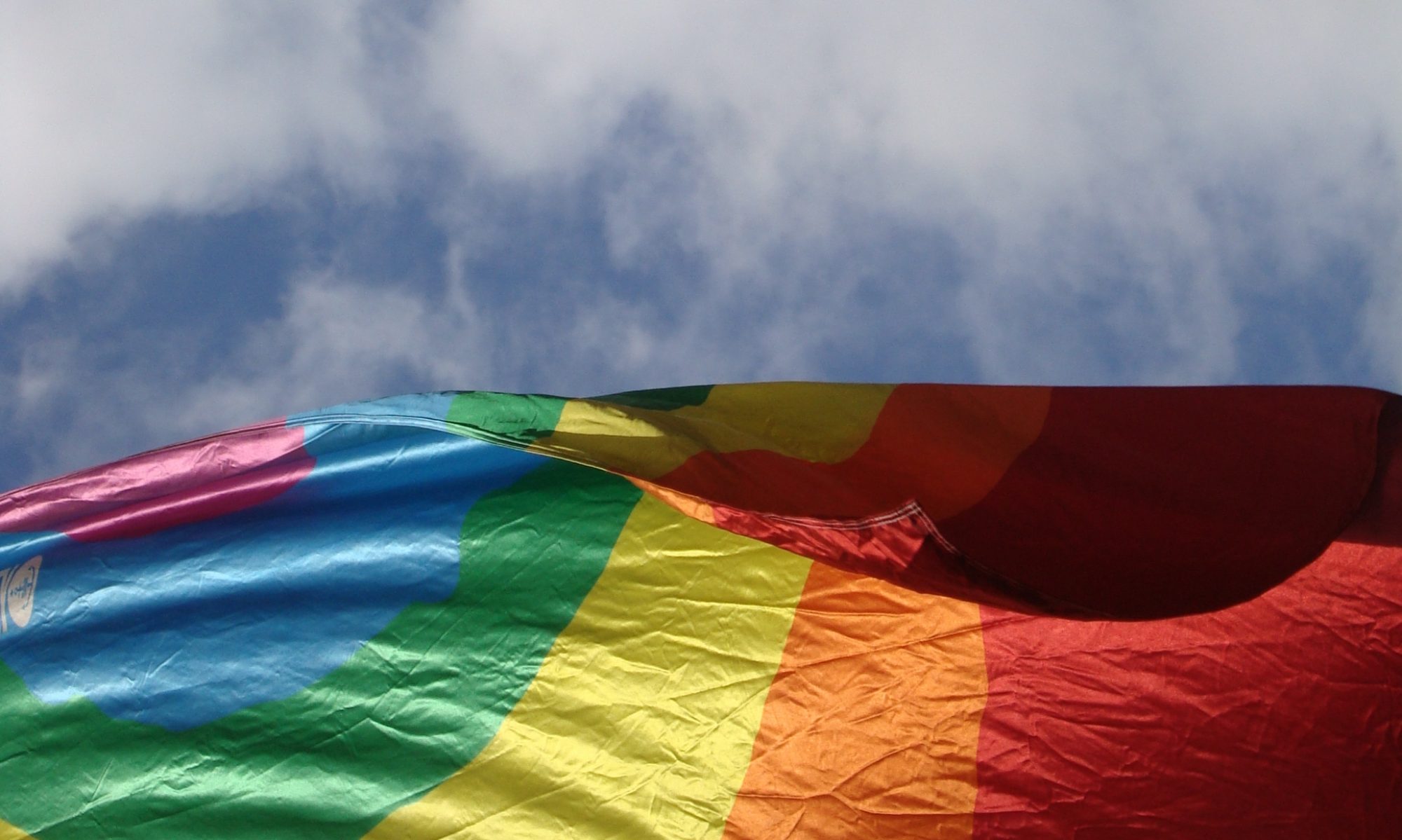



 Growing up in Singapore
Growing up in Singapore The gay scene in Singapore
The gay scene in Singapore

